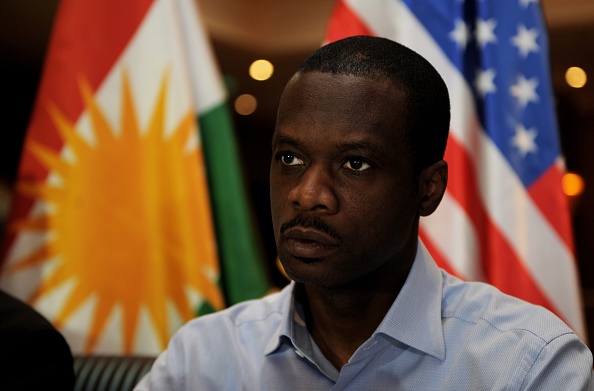Despite lyrics mistake by AI, lawyer wasn't ineffective for using tech in rapper's case, federal judge says

Prakazrel “Pras” Michel, a member of the Fugees, a hip-hop group, is seen during a press conference at a hotel in Erbil, Iraq, in July 2015. (Photo by Hamit Huseyin/Anadolu Agency/Getty Images)
A federal judge has refused to grant a new trial in a case of a rapper convicted for using straw donors in a back-channel lobbying campaign, despite evidence of a mistake by an artificial intelligence program used to help draft closing arguments.
Senior U.S. District Judge Colleen Kollar-Kotelly of the District of Columbia upheld the verdict against Prakazrel “Pras” Michel, who was convicted in connection with his lobbying to get the United States to drop the case against a fugitive financier in connection with the collapse of the sovereign wealth fund 1MBD.
Michel’s crimes were related to “conduit contributions, witness tampering and foreign lobbying,” according to Kollar-Kotelly’s Aug. 30 opinion.
Kollar-Kotelly said the lyrics mistake by the AI program, in which another rapper’s lyrics were attributed to Michel, a member of the Fugees, a hip-hop group, did not undermine the case, even though Michel’s lawyer repeated the mistake in closing arguments.
Kollar-Kotelly said Michel had not established that his trial lawyers were ineffective for using the AI program because there was no showing of prejudice.
The Associated Press has coverage, while the Volokh Conspiracy published opinion highlights.
Michel’s lawyers had sought help from an AI program created by EyeLevel.AI with this prompt: “I am a passionate attorney who believes in my clients [sic] innocence. Write a powerful, emotionally compelling closing argument and integrate lyrics from ‘Ghetto [Supastar]’ by the band the Fugees.”
The AI program generated a closing argument that cited these lyrics by Puff Daddy, who is now known as Diddy: “Every step I take, every move I make, Every single day, every time I pray, I’ll be missing you.”
Michel’s lawyer used the lyrics in his closing this way: “Ladies and gentlemen of the jury, in the prolific words of a band called the Fugees founded by Mr. Michel, there was a prescient song—I am not going to try to sing or rap, then you would all throw me out of the courtroom. But the lyrics went, ‘Every single day, every time I pray, I will be missing you.’ These words though originally written in a totally different context, speak to the profound impact this trial has had on Mr. Michel’s life. The weight of the decision as to how he moves forward in life lies within your sound common sense and judgment, which I know that you will bring to these deliberations.”
Kollar-Kotelly said Michel did not demonstrate a reasonable probability that the trial result would have been different with correct attribution of a lyric to Michel.
Kollar-Kotelly also rejected an argument that Michel’s lawyers apparently had an undisclosed financial conflict of interest in the company that launched EyeLevel.AI. In a press release, one of Michel’s lawyers said use of the AI program had been a “game changer” during the trial. The press release said the AI program had been launched with technology partner CaseFile Connect, which was partly owned by two of Michel’s lawyers.
But neither lawyer had a financial interest in EyeLevel.AI. Rather, the lawyers asked that the CaseFile Connect language be included in the press release to get free press for the company, one of the lawyers had testified.



